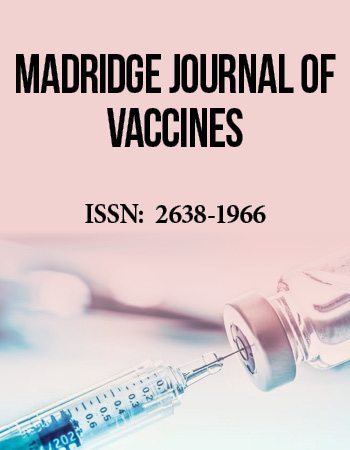International Conference on Vaccines
Feb 20-22, 2017 | Baltimore, USA
The development of specific cancer vaccines targeting colorectal and pancreatic cancer
Div. Surgical Oncology, North Shore Univ. Hosp / Northwell Health System and Precision Biologics
We have noted in experimental studies designed to isolate and characterize the immunogen that defines colorectal and pancreatic cancer, that the transforming cell initially expresses this protein at the time of genotypic transformation prior to the appearance of those cells demonstrating phenotypic features of neoplasm. This protein is represented by a mutated oncofetal protein acting as an immunogen but at too low a level to induce a host immune response. This process appears to occur at least 6 months prior to any atypical appearance of the transforming cell. The transformation which can be demonstrated in normal appearing cells adjacent to a malignant lesion appears to suggest that the transformation process is not defined by a mutation in one altered cell, but rather occurs within a field within which the tumor process had been initiated. This field appears to represent a large cluster of transformed cells existing in a dormant state induced by the presence of the tumor that had progressed within the field itself. Removal of the developing malignancy appears to remove any localized immune suppressive activity which allows further transformation within those cells already existing within the field.
As the tumor progresses genetically it initiates the production of a number of factors including matrix metalloproteinase. This allows the cell to invade adjacent vessels that have grown into the tumor but also results in the break down of e-cadherin to its small form the s-e cadherin which then initiates progression and metastasis. Many tumors that ‘metastasize’ or spread throughout the body reside in that specific location of implantation as a result of the surface glycoprotein expressed on the outer cell membrane of the tumor, a seed and soil concept. As such, that lesion metastatic to liver can only grow in the liver parenchyma and can not spread to other organs. At best, the lesion can only proliferate in that organ in which it has implanted.
Because of the extremely low level of oncofetal protein expression within any tumor system, the host immune system virtually bypasses this antigen allowing uninterrupted growth of the tumor within the host. At best, host immunity can only initiate a process of tumor surveillance wherein the host can identify and destroy one or two criminal cells in a population of thousands of such cells. Prehn had originally suggested that in order to induce immune recognition, one must pool the tumor immunogen to its threshhold level of activity to assure specificity in recognizing the system. The important antigens defining an array of malignant lesions expressed in the colorectal system was defined by Hollinhead employing pooled allogeneic membrane protein. This pooled material was subfractioned by sephadex gel and discontinuos polyacrilamide gel electrophoresis. The components of the separation process were tested by delayed cutaneous skin hypersensitivity in patients with the specific tumor, patients with different malignancies and normal volunteers. For colon cancer, an antigen of approximately 60-80 kd was defined. Testing for an immune response, doses of approximately 500-1000 ugm of partially purified antigen were found necessary to turn on effective immune reactivity.
FDA suspected that even though the final antigen preparations represented a single band on isoelectrophoresis that the protein composition was complex and probably represented several antigens or oncofetal proteins migrating to the same region on the gel. As such, it was suggested that a genetically engineered preparation would be required for future clinical trials eliminating the process of producing a pooled allogeneic preparation. As such, by todayʼs standard, this form of preparation using pooled tumor from operative specimens would be subject to the potential of possible contamination by HIV, HPV or Hep B and C. Monoclonals were therefore developed to the antigen used in the study and obviously as anticipated several mAbs were obtained that cross reacted with colon cancer. The mAbs in the IgG1 format were found capable of destroying tumor by ADCC and valuable in the purification of antigen in anticipation of mass spectroscopy studies.
To clarify the antigen composition, HPLC was performed with at least 3 significant bands being defined in the colorectal/pancreas oncofetal proteins. Three distinct antigens have been isolated, characterized and developed for clinical trials. The pooled allogeneic antigen when first employed, was able to produce between 70 and 90 % survival free of disease recurrence. While the antibodies derived from these proteins are being employed with significant responses in those patients having failed all therapeutic modalities, vaccines are now being developed GMP to use in those patients where post surgery, there is a very high rate of recurrence at the 1-2 year post surgical period of time. An example is in found in those patients undergoing pancreatectomy where even when nodal disease may be absent, at 1-2 years post surgery, 90% of the patients will present with recurrent disease.
Biography:
Dr. Myron Arlen, M.D. is a Principal Founder of Neogenix Oncology Inc. in 2003 and has been its Director of Medical Affairs since March 2010. Dr. Arlen has substantial executive experience in the biotechnology industry. Dr. Arlen served as the Chief Executive Officer of Neogenix Oncology Inc. from 2003 to March 2010. Dr. Arlen served as Chairman of Neogenix Oncology Inc. and served as its Director from 2003 to January 2012. Dr. Arlen was trained as a cancer surgeon at Memorial Sloan-Kettering where he remained on staff for 20 years involved in the surgery of advanced cancer problems and the immunotherapeutic approaches to managing the patients. Dr. Arlen established the Surgical Oncology Division at North Shore University Hospital, and formed a practice group (North Shore Surgical Oncology Associates). He has written two major textbooks and published over 80 journal articles related to cancer treatment. In the 1990ʼs, Dr. Arlen helped to found another biotechnology company, International Bio-Immune Systems, Inc. of which he was part of management until 2003.


